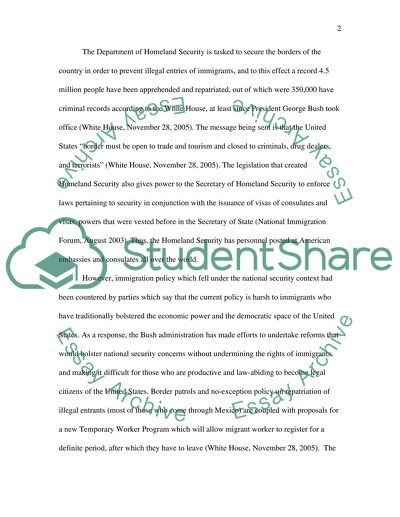Cite this document
(“US Policy on Immigration Essay Example | Topics and Well Written Essays - 1250 words”, n.d.)
US Policy on Immigration Essay Example | Topics and Well Written Essays - 1250 words. Retrieved from https://studentshare.org/politics/1522114-department-of-homeland-securitys-policy-on-immigration
US Policy on Immigration Essay Example | Topics and Well Written Essays - 1250 words. Retrieved from https://studentshare.org/politics/1522114-department-of-homeland-securitys-policy-on-immigration
(US Policy on Immigration Essay Example | Topics and Well Written Essays - 1250 Words)
US Policy on Immigration Essay Example | Topics and Well Written Essays - 1250 Words. https://studentshare.org/politics/1522114-department-of-homeland-securitys-policy-on-immigration.
US Policy on Immigration Essay Example | Topics and Well Written Essays - 1250 Words. https://studentshare.org/politics/1522114-department-of-homeland-securitys-policy-on-immigration.
“US Policy on Immigration Essay Example | Topics and Well Written Essays - 1250 Words”, n.d. https://studentshare.org/politics/1522114-department-of-homeland-securitys-policy-on-immigration.


